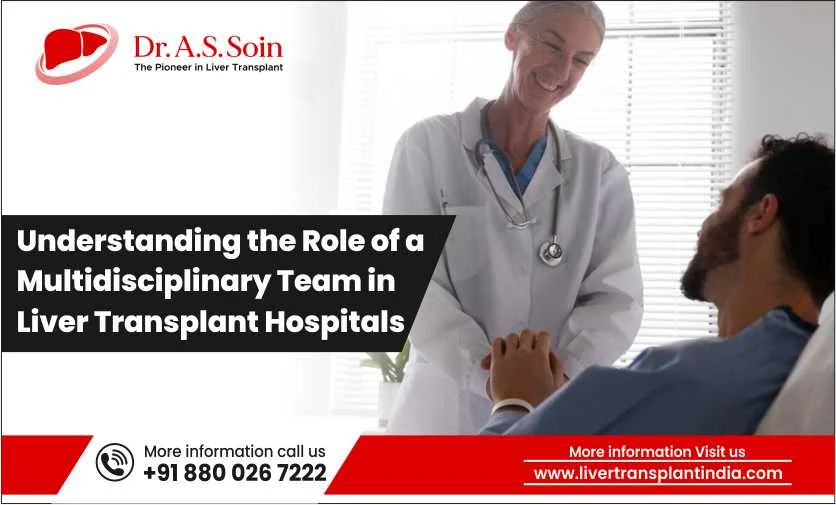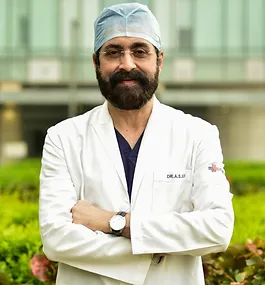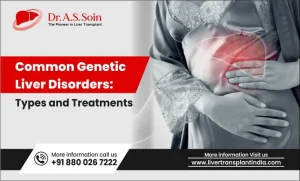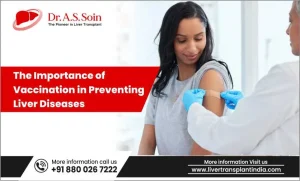A liver transplant is not just a surgical procedure—it’s a transformative experience that requires the expertise of diverse medical specialists. At the heart of every successful liver transplant program lies a multidisciplinary team (MDT) designed to address the medical, logistical, and emotional aspects of the process. In India, reputable liver transplant hospitals rely on MDTs to ensure optimal outcomes for patients.
This article explores the responsibilities of MDTs, how they function, and why they are integral to successful transplants and long-term patient care. Understanding their role can help you make informed decisions when choosing a liver transplant hospital, particularly in Delhi.
Table of Contents
ToggleWhat is a Multidisciplinary Team (MDT) in Liver Transplants?
A multidisciplinary team comprises medical specialists from various fields working collaboratively to provide comprehensive care for liver transplant patients. Unlike traditional care models focusing on one or two specialties, MDTs adopt a holistic approach that addresses patients’ physical, emotional, and social needs.
Typically, an MDT in a liver transplant hospital includes surgeons, hepatologists, anesthetists, transplant coordinators, dietitians, psychologists, social workers, and physiotherapists. Each member brings unique expertise, ensuring seamless coordination throughout the transplant journey.
The Value of MDTs in Liver Transplant Hospitals
- Comprehensive Care
Liver transplants affect more than just the liver. Complications such as immune suppression, metabolic imbalances, and psychological stress are common. MDTs address these issues holistically, enhancing recovery and long-term health by coordinating efforts among surgeons, nutritionists, and other specialists. - Risk Reduction
Collaboration among multiple experts enables early detection of potential risks. For example, hepatologists and anesthetists optimize pre-operative conditions, reducing surgical and post-operative complications. - Customized Treatment Plans
Each patient’s needs are unique. MDTs develop personalized treatment plans tailored to individual medical and emotional requirements, ensuring the best possible outcomes from pre-operative preparation to post-operative care.
Key Members of an MDT
- Transplant Surgeons
Surgeons perform the transplant procedure, replacing the damaged liver with a healthy donor organ. They also address surgical challenges and evaluate transplantation feasibility. - Hepatologists
These liver specialists manage pre- and post-transplant care, assess liver disease severity, determine eligibility, and monitor liver function after surgery. - Anesthetists
Anesthetists ensure patient stability during the intricate surgical process, manage pain, and oversee recovery from anesthesia. - Transplant Coordinators
Coordinators act as liaisons between patients, families, and team members, ensuring smooth communication and handling logistical aspects of the transplant process. - Dietitians
Nutrition is critical for liver health. Dietitians prepare pre- and post-operative dietary plans to aid recovery and ensure long-term well-being. - Psychologists
Transplants often involve significant emotional stress. Psychologists provide therapy to help patients and families cope with anxiety, fear, or depression. - Social Workers
Social workers handle administrative tasks, such as donor compatibility tests and financial arrangements, and connect families to support groups. - Physiotherapists
Physical recovery is vital after surgery. Physiotherapists guide patients through exercises to regain strength and mobility.
How MDTs Work
- Pre-Transplant Assessment
The process begins with thorough evaluations to determine eligibility. This involves medical tests by hepatologists, psychological readiness assessments, and nutritional guidance. Transplant coordinators ensure smooth coordination during this phase. - Surgery
During surgery, anesthetists monitor patient stability while surgeons perform the transplant. Support staff play a crucial role in ensuring the procedure’s success. - Post-Operative Care
Recovery is a critical phase where MDT members provide ongoing support:- Hepatologists monitor liver function and adjust medications.
- Psychologists offer emotional counseling.
- Physiotherapists aid physical rehabilitation.
- Dietitians recommend liver-friendly diets.
Patient & Family Education
Educating patients and families is crucial for successful liver transplant programs. MDT members, such as social workers and transplant coordinators, explain the surgical process, risks, and post-operative care requirements. Psychologists and dietitians also guide families on lifestyle changes and emotional preparedness.
This education empowers families to actively participate in the recovery process, recognize warning signs of complications, and reduce anxiety. Leading liver transplant hospitals in India prioritize this aspect to ensure better long-term outcomes.
Benefits of MDTs
- Higher Survival Rates: Coordinated care reduces errors and complications, leading to improved survival rates.
- Faster Recovery: Holistic support—covering medical, emotional, and physical aspects—accelerates recovery.
- Long-Term Care: MDTs provide continuity of care, monitoring patients’ health for years post-transplant.
Challenges Faced by MDTs
- Communication Barriers: Effective coordination among specialists is essential but can be challenging.
- Resource Constraints: Not all hospitals have the infrastructure to support robust MDTs.
- Patient Adherence: Ensuring patients follow post-transplant care plans is critical yet sometimes difficult.
Despite these challenges, facilities like Liver Transplant India, led by Dr. A.S. Soin, set benchmarks by overcoming obstacles and delivering exceptional outcomes.
Choosing the Right Liver Transplant Hospital
When selecting a liver transplant hospital, prioritize one with a strong MDT that offers holistic care. In Delhi, Liver Transplant India stands out for its patient-centric approach, combining expertise with compassionate care.
Conclusion
Multidisciplinary teams are indispensable to liver transplant programs. From pre-transplant assessments to long-term post-operative care, MDTs ensure every aspect of a patient’s journey is handled with precision and empathy.
Choosing a hospital with a well-coordinated MDT, like Liver Transplant India, can significantly improve recovery and long-term health outcomes. Contact their team today to begin your journey toward better health.








